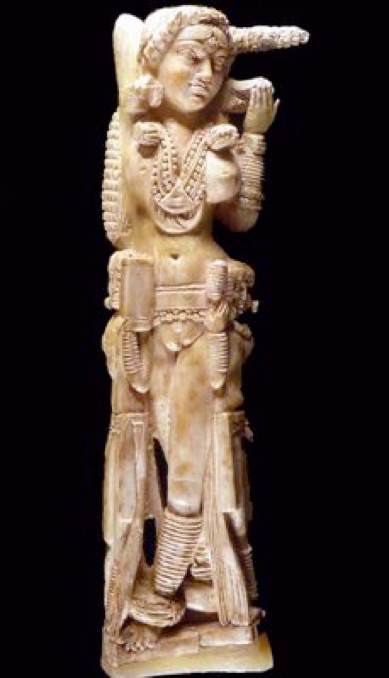Archaeological tours, packages and exclusive multy day excursions in Campania for tourists, lovers,
scholars and students.





Archaeological tours, packages and exclusive multy day excursions in Campania for tourists, lovers,
scholars and students.
In 1939, the Italian archeologist Amedeo Maiuri discovered an artifact that had a Indian origin in the ruins of the ancient Pompeii. This ivory statuette was founded in a modest dwelling, and it was identified as that of the Goddess Lakshmi and dated to around first half of the first century AD. This small, rare sculpture, represents nonetheless an important indication of the trade relations that existed already by the 1st century A.D. between the Western Mediterranean countries and the Asia. The port of Puteoli, known today as Pozzuoli, was created in Augustan times and received from every known destination spices, slaves, wine, grain, ceramics and precious objects to be sold on the Roman markets.
The statue portrays Lakshmi, the Indian divinity of feminine beauty and fertility. She is naked, with two handmaidens at her sides bearing toiletries. Her body is adorned with jewels, and a round hole above the head suggests, however, that the statuette had been used as a handle, probably for a toiletry object, or as a support for some kind of furnishing.

LAKSHMI
Pompeii Tour guide - Herculaneum Tour guide - Stabiae Tour guide - Oplontis Tour guide - Naples Tour guide
Amalfi Coast - Sorrento - Positano - Paestum Tour guide - Capua Amphitheater - Procida - Ischia - Capri
Copyright © Pompeiin.com - E-mail: info@pompeiin.com

